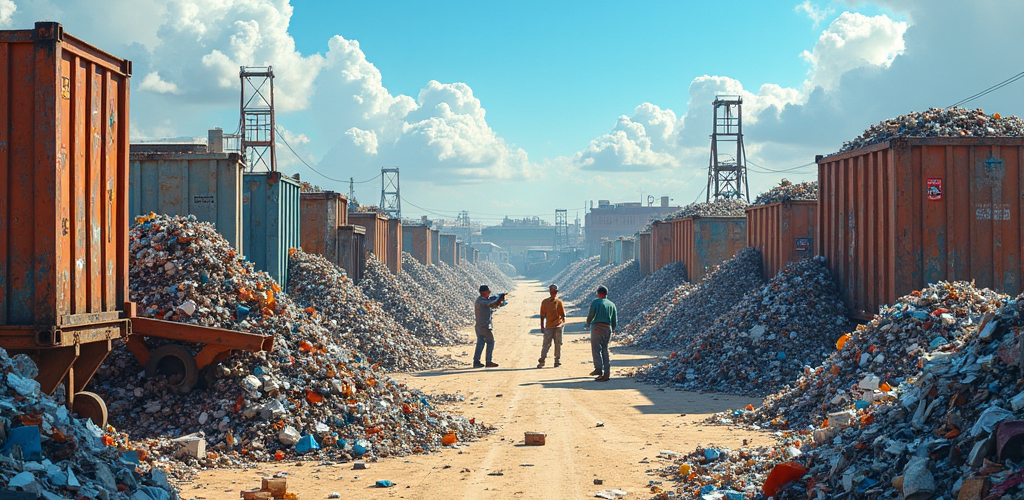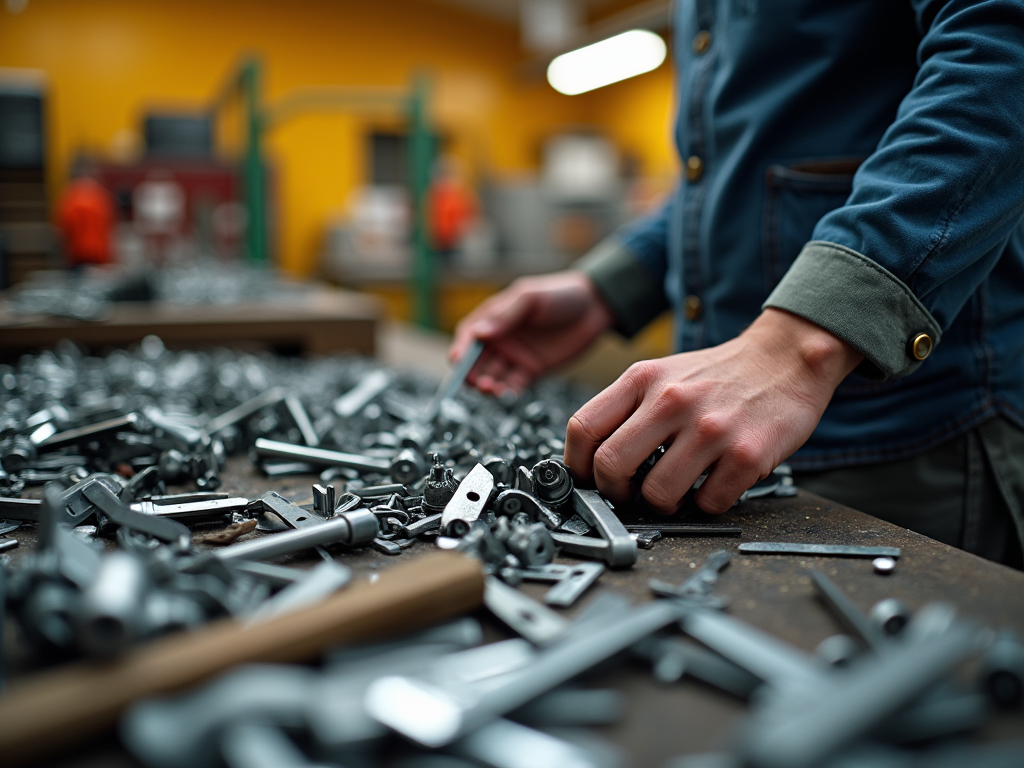How to Start a Scrap Business in Dubai, UAE
November 15, 2024

Starting a scrap business in Dubai can be a lucrative venture given the city’s continuous urban development and commitment to sustainability. The scrap industry is thriving, providing ample opportunities for entrepreneurs to capitalize on recyclable materials. To ensure success, one must navigate legal requirements, market dynamics, and effective operational practices. This article outlines the necessary steps to kickstart your scrap business in Dubai, providing you with the insights needed to thrive in this competitive landscape.
Understanding the Scrap Business Landscape in Dubai

The scrap business in Dubai operates within a unique market influenced by various factors, including demand for raw materials, environmental policies, and infrastructure growth. With its strategic location, Dubai allows access to numerous markets, making it a hub for trading scrap metals and other recyclable materials. Additionally, the UAE government is keen on promoting recycling to support its sustainability initiatives, creating a favorable environment for scrap businesses. Understanding the local market dynamics is crucial, as knowing your potential customers—such as construction companies, manufacturers, and traders—helps in shaping your business strategy. Furthermore, it’s essential to keep abreast of regulations and best practices aimed at reducing environmental impacts, thereby maximizing your business’s potential profitability.
Legal Requirements to Start Your Scrap Business

Setting up a scrap business in Dubai necessitates compliance with various legal and regulatory frameworks. Initiating this process involves several key steps:
- Business License: You need to obtain a trading license specifically for scrap trading, issued by the Dubai Department of Economic Development (DED). This license differentiates your business and legitimizes your operations.
- Location Approval: Your business location must align with Dubai’s zoning laws. Some areas are designated specifically for scrap yards, which are regulated to minimize environmental impact.
- Environmental Clearance: Engage with the Dubai Municipality for necessary environmental permits. This ensures that your operations adhere to local environmental laws.
- Documentation: Prepare documentation for registration, including proof of identity, commercial lease agreement, and partnership contracts if applicable.
- Insurance: Obtain appropriate insurances, including liability coverage, to protect your business from unforeseen events.
Understanding and fulfilling these legal requirements is essential not only to avoid penalties but also to establish a credible business. Consulting with legal professionals specializing in Dubai business law can help streamline the process.
Necessary Equipment and Infrastructure
Equipping your scrap business with the right tools and infrastructure is vital for seamless operations. The following are essential tools and equipment you will need to consider:
- Vehicles: Depending on the scale of your operation, consider investing in trucks or vans for transportation of scrap materials.
- Sorting Equipment: Efficient sorting systems will enable you to categorize different types of scrap materials more effectively.
- Processing Machinery: Depending on the type of scrap, you may require shredders, crushers, or balers to prepare materials for resale.
- Storage Facilities: Adequate space for storing scrap materials is essential to maintain organization and workflow.
- Safety Gear: Ensure that all workers are equipped with necessary safety gear, including helmets, gloves, and protective clothing.
Investing in quality equipment and infrastructure will reduce operational downtime and enhance productivity, setting a strong foundation for your business.
Marketing Your Scrap Business Effectively
While establishing a functional scrap business is crucial, effective marketing strategies can significantly enhance visibility and customer acquisition. Below are key strategies to market your scrap business:
- Online Presence: Develop a professional website and utilize social media platforms to showcase your services and engage with potential customers.
- Networking: Form partnerships with local businesses, industries, and municipalities that require scrap services or can provide you with scrap materials.
- Advertising: Utilize local newspapers, trade magazines, and online ads to promote your services, particularly targeting industries that regularly generate scrap materials.
- Customer Service: Providing excellent customer service can lead to referrals and repeat business, which is invaluable in the local scrap industry.
By implementing these marketing strategies, you can create a strong brand identity in Dubai’s competitive market, ensuring that your scrap business stands out.
Conclusion
Starting a scrap business in Dubai involves understanding the local market, complying with legal requirements, investing in necessary equipment, and crafting effective marketing strategies. By following these guidelines, aspiring entrepreneurs can position themselves in a robust and growing industry dedicated to sustainability and recycling. Increased demand for scrap materials, driven by ongoing construction and development projects in Dubai, solidifies the potential for profit, making this an opportune moment to venture into the scrap business.
Frequently Asked Questions
1. What types of scrap materials can I deal with in Dubai?
You can deal with various types of scrap materials, including metals (such as aluminum, copper, and steel), plastics, and electronic waste. Understanding the different categories will help you target specific markets.
2. Do I need a special license to collect scrap materials?
Yes, a trading license issued by the Dubai Department of Economic Development is required for collecting and trading scrap materials. Additional permits may also be necessary depending on the type of material.
3. Is it necessary to have a physical location for my scrap business?
A physical location is often required, especially for storage and processing activities. However, some businesses operate as mobile scrap traders, collecting materials without a fixed base.
4. How can I ensure compliance with environmental regulations?
Consult with the Dubai Municipality and follow their guidelines to ensure compliance. Additionally, conducting regular audits of your operations will help you align with environmental standards.
5. What are the common challenges in the scrap business?
Common challenges include fluctuating market prices, managing supply chain logistics, and adhering to legal regulations. But, with proper planning and networking, these challenges can be managed effectively.